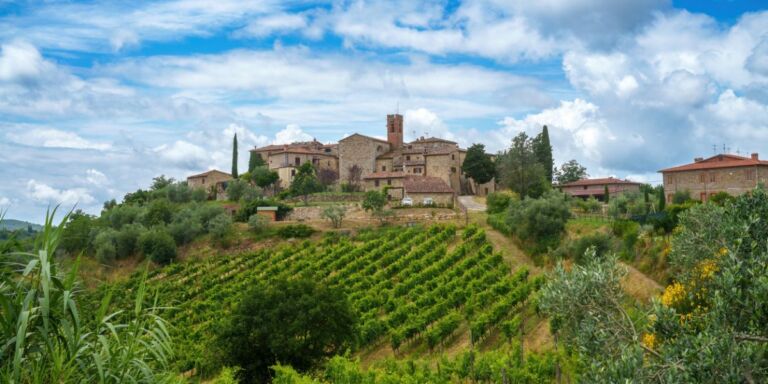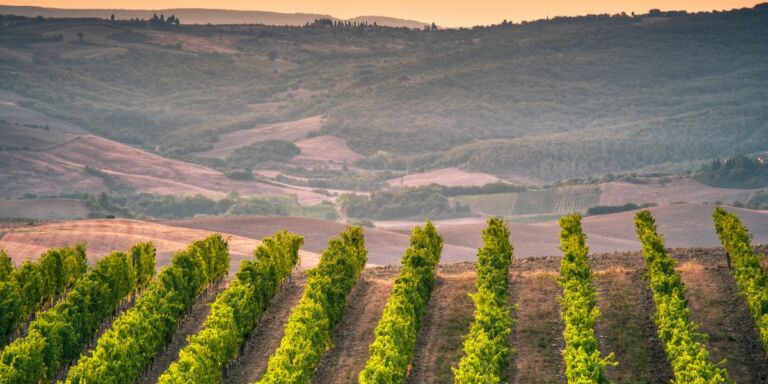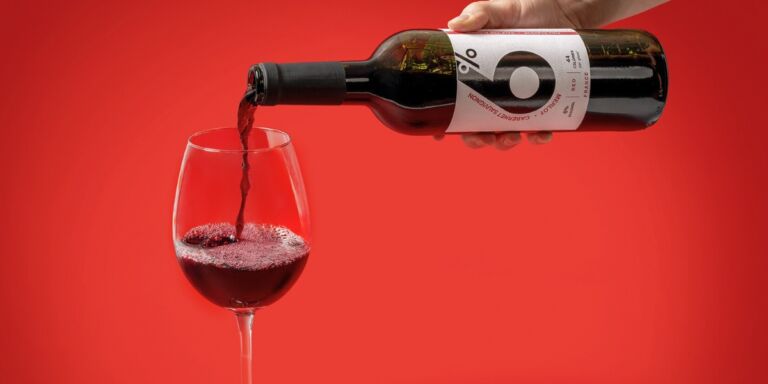Back in 2009, Daniel Patterson, the chef and owner of the since shuttered two-Michelin-starred Coi in San Francisco, made a striking proclamation. Writing in the Financial Times, he profiled a number of chefs who were rejecting the imported luxe ingredients previously ubiquitous in fine dining kitchens – fillet steak, foie gras, lobster – in favour of fruit, grains and vegetables. The latter could be grown with love and care closer to home, he explained, and the piece’s headline captured this sea change in culinary thinking with striking economy: ‘Carrots are the new caviar.’
Thirteen years is a long time in fine dining, and the wheels of fashion and taste have revolved several times since Patterson put pen to paper. But what sounded back then like a rallying cry in favour of seasonal, produce-led cooking now has a slightly different resonance. In the face of the climate crisis, chefs in restaurants across the world are beginning to re-evaluate the amount of environmentally damaging fish and animal products on their menus.
As more and more consumers flirt with or switch fully to a vegan diet, fine dining is beginning to consider whether it, too, should move with the times. Patterson’s article was about encouraging ‘a willingness to reconsider what’s worth eating’. But it envisaged a world where both animal protein and vegetables could live together on the plate as equals. More than a decade on, people are beginning to ask whether meat, fish, dairy and cheese have any place on a menu at all. This time, we mean it literally: can carrots become the new caviar?

Combating the climate crisis takes many forms, even if fine dining might seem a funny place to start. By virtue of the eyewatering sticker price of dinner in a high-end restaurant, these are not the type of places most people visit with any frequency. Furthermore, the sort of meat and fish served in Michelin-starred restaurants is not exactly what we mean when we say fishing and farming is destroying the planet: can we not leave chefs and their free-range, heritage-breed livestock out of the conversation?
Unfortunately, the answer is no, not really. It’s a line of argument that overlooks the outsized impact fine dining has on the rest of the food world – and the influence wielded by the biggest beasts at the top of the culinary chain. From Gordon Ramsay to René Redzepi, celebrity chefs are commanding figures, with sizeable social media followings; they have an undeniable impact and can therefore lead from the front. The most notable case of someone doing so is Daniel Humm, who announced (tellingly, via Instagram) in May 2021 that when it reopened after a 15-month Covid-enforced hiatus, Eleven Madison Park – his Manhattan-based, three-Michelin-starred temple to gastronomy, which as recently as 2017 had been crowned the best restaurant in the world – would go entirely plant-based.
Eleven Madison Park is one of a handful of restaurants in the world that could make the vegan fine dining equation add up
This was not exactly the first time a story like this had broken: Alain Passard scandalised half of Paris when he removed meat from the menu at L’Arpège as far back as 2001; when Thomas Keller opened Per Se in New York in 2004, sceptics rolled their eyes at the idea of a vegetarian tasting menu on offer for the best part of $300; in London, Gauthier Soho, which had offered a pioneering vegan alternative to its tasting menu long before such things were fashionable, quietly also went 100% plant-based last year. But this was the first time a chef with Humm’s global profile, in a restaurant of Eleven Madison Park’s cachet, had done something on this scale.

To say the news caused a sensation would be an understatement. Humm later announced that the waiting list had topped out at more than 50,000 people, and over the coming months, food-dork social media would be driven into a frenzy by images and descriptions of the ingenious lengths to which Humm and his team had gone to replicate the look and feel of being in a fine dining restaurant without any of the ingredients that usually act as helpful context clues.
Teensy tonburi seeds, imported from Japan, took the place of sturgeon roe in Eleven Madison Park’s riff on a caviar service; a gorgeous, mimetic disk of sunflower butter topped with miso accompanied bread rolls; beetroots and aubergines were marinated, roasted, charred and sauced to attempt to echo the nuanced, umami-heavy flavours of prime cuts of meat. On Instagram, at least, it looked like the future could actually have arrived.
Then the reviews began to come in. The New York Times’ Pete Wells likened eating there to exploring ‘the plant kingdom’s uncanny valley’, declaring that ‘almost none of the main ingredients taste quite like themselves’ in the course of a 10-course, $335-a-head tasting menu; Eater’s Ryan Sutton minced even fewer words, stating flatly that ‘Eleven Madison Park Isn’t Ready to Be a World-Class Vegan Restaurant’ and noting several courses are still clearly ‘works in progress’.

The dissatisfaction that Sutton and Wells felt with some of the dishes they’d eaten gets to one of the core issues with vegan fine dining as a concept. Meat, fish and dairy have risen to prominence in our culture for a host of complex historical reasons. They were originally harder to attain than plant matter (wild animals being more dangerous than barely animate plants and trees), and as our dietary fixation on protein ballooned following World War II, they have only gained in perceived value.
One simple additional explanation for their durability is that they’re also delicious. Pigs, cows and chickens are repositories of flavour-enhancing fat; animal proteins caramelise when they come into contact with heat, producing a whole host of additional tastes and aromas; cheeses hum with the lactic tang of microbial activity. This is not to say it is impossible for vegan food to taste as nice or as satisfying as non-vegan food – anyone who has enjoyed a wrap stuffed with crispy falafel and creamy tahini can testify otherwise – but delivering deliciousness without recourse to animal products is that much harder. Add salt to a steak and put it on a barbecue, and you get one of life’s great dining experiences. Add salt to an aubergine and put it on a barbecue, and you get a burnt aubergine.
Making an all-vegan menu taste good enough to merit a $335 price tag takes work. And if the result of all that manipulation is still not as delicious as the dish it purports to replace – in the sort of restaurant where deliciousness is the whole point – the exercise does begin to feel somewhat futile.
If you trace fine dining back along its history, one thing it has never been is plant-based
It is for this reason that it hard to imagine everyone in fine dining following Humm’s lead. Eleven Madison Park is one of a handful of restaurants in the world that could make the vegan fine dining equation add up. Even in a period of unprecedented labour shortages, it can take its pick from the young chefs lining up to work in its kitchen, elevating aubergines into art; even in a world where people are sceptical enough about vegan fine dining, it is famous enough to have punters queuing out the door for the opportunity to spend a non-refundable $335 on a booking months down the line. Humm was praised by many for the risk he took in going vegan, but he is hardly the same as a chef-proprietor trying to keep the lights on at the lone highend restaurant in a small town. Going 100% plant-based in that context might offer a little more jeopardy.
Certainly, this is what Claridge’s felt when, in one of the biggest restaurant news stories last year, Humm parted ways with the London hotel after just two years at the helm of his restaurant there, Davies and Brook. Humm had wanted to follow the lead of Eleven Madison Park by taking the menu entirely plant-based; the hotel’s official statement politely noted, ‘This is not the path we wish to follow here at Claridge’s at the moment, and therefore, regretfully, we have mutually agreed to go our separate ways.’ Ouch.

Yet even stating that vegan fine dining is unlikely to catch on presupposes some fairly fundamental things about the very idea of fine dining, and what a vegan version of it should look like. In Eleven Madison Park’s fake caviar service or Gauthier Soho’s celebrated ‘faux gras’ (a concoction of mushrooms, lentils, walnuts and Cognac), there is a clear attempt at one-for-one substitution: take the old classics of fine dining, only somehow veganise them.
But if you trace fine dining back along its history, one thing it has never been is plant-based: historically, anyway, it has been horrendously Eurocentric, happy to borrow (especially from the traditions of Japan) when it suited its purpose, but hidebound in its preference for certain techniques, ingredients and methods of presentation. How can anyone ever create an equally satisfying version of that experience while denying themselves so many of its fundamental building blocks?
Carrots are not the new caviar – and that’s exactly where things get exciting
True vegan fine dining would necessarily look significantly different from fine dining as it has existed up to this point. Eleven Madison Park, with its dosas and its tonburi, at times tacitly (and to be fair, at times explicitly) acknowledges that there are other parts of the world where rich and robust plant-based traditions have developed over time. Humm is vocal in his admiration for Japanese shojin cuisine (an entirely vegan culinary repertoire with Buddhist roots); Sichuan, Ital and certain regional Indian cuisines are the product of centuries’ worth of culinary experimentation within the plant kingdom.

And so perhaps the most intriguing thing about the question of vegan fine dining is that it could open up a whole new conversation around who gets to cook high-end food and what that food looks like. In this analysis, a 2017 episode of the Netflix documentary series Chef’s Table is especially prescient. In previous seasons, the show had profiled the big beasts of Western fine dining, such as Massimo Bottura, Grant Achatz and – in its French incarnation – Alain Passard. But this time around, it told the story of Jeong Kwan, a Zen Buddhist nun who cooked for the worshippers at Baekyangsa Temple in South Korea – and did so via an entirely vegan repertoire of dishes. As the familiar music began to swell and the usual shots of prime proteins were replaced with loving still lifes of pickled lotus roots, tofu dumplings and vibrant kimchi, one thing became clear: carrots are not the new caviar – and that’s exactly where things get exciting.








